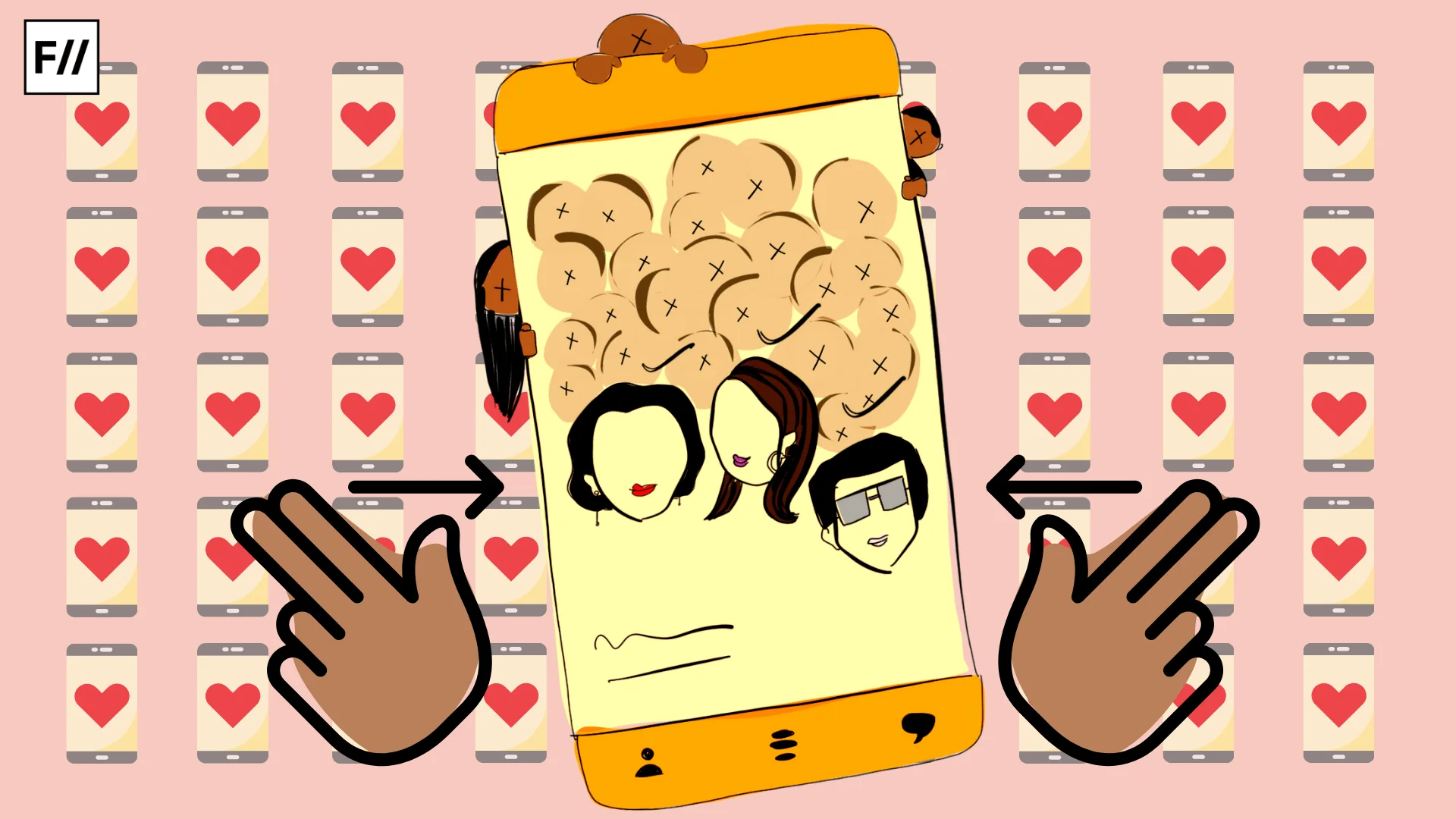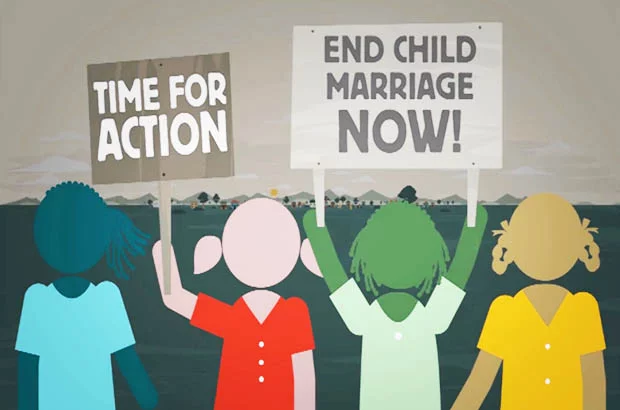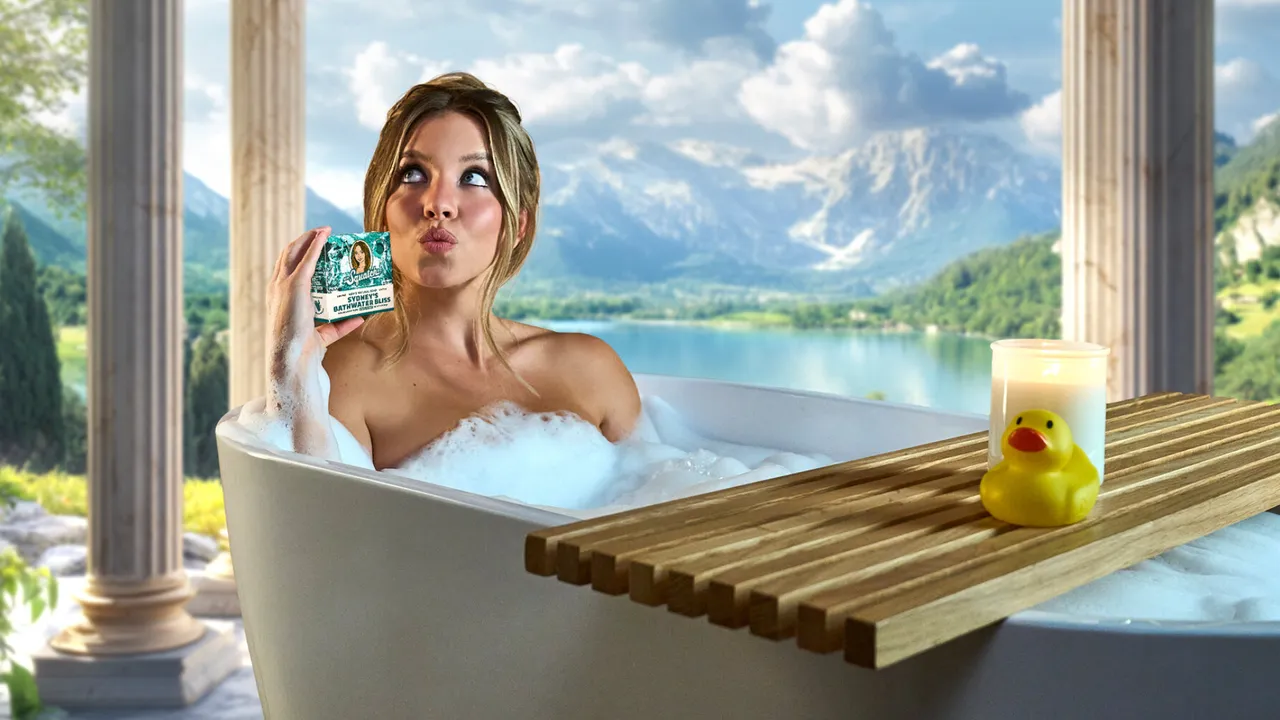The first thing that I happened to learn during my course on feminism during my graduation was, ‘Personal is political’ which always resonated in my mind and made me question and rethink about all the choices that we as individuals make which do have larger impact on the societal structure. Recently that I have moved back home after quitting my job to prepare for a few exams, the pressure surrounding my marriage seems to be inevitable given the fact that I am now of ‘marriageable age’.
During a conversation regarding my marriage, one of my relatives came up to me and asked me politely by what age I planned to get married. To which I casually replied, “Hmmm”, indicating that I was not really interested in the same anytime soon. In her attempt to appear ‘liberal’ and ‘modern’, she suggested that I tell the family if at all I was seeing someone and have decided to marry someone of my choice. I instantly agreed to that. However, the entire universe must have fallen upon her that I agreed to the prospect of marrying someone whom I had chosen. She quickly intervened and added all the terms and conditions under which I was ‘allowed to choose’.
Her list of dos and don’ts went something like this.
- No foreigner (implying that he should be Indian)
- No Christian or Muslim (implying that he should be of the same religion as I am, that is a Hindu)
- He should belong to a ‘good’ caste (implying that he should belong to upper caste)
- He should have solid financial backing (implying that he must belong to upper class)
Since then I have been analysing how the principles of endogamy (marrying within one’s own community) and the concept of ‘purity’ and ‘pollution’ are intricately intertwined with each other which in turn results in controlling women’s bodies and suppressing their sexuality. Indian society is largely endogamous and the concept of arranged marriages in the modern day (in urban India) is presented as a portal where children and parents seem to be choosing together, however, when looking for a partner, they inevitably look for someone who belongs to the same caste, religion, and background, which makes it a close ended choice and not an open one.
we automatically relegate the people belonging to ‘other’ communities in a subordinate position which leads to holding our biases with more conviction.
Even if I choose not to get into a political or academic debate as to why endogamy as a norm is not the healthiest, I choose to view this issue from the standpoint of mere human rights. If we are choosing to marry someone from our ‘own’ community in the name of fabricated ‘choice’, we automatically relegate the people belonging to ‘other’ communities in a subordinate position which leads to holding our prejudices and biases with more conviction and keeping numb regarding any acts of violation towards the people of the ‘other’ community.
It sounds completely unethical and immoral to me to choose companionship based on any particular identities because such a choice is reflective of the highly intolerant views that we as a society hold towards people who belong to any other community which leads to social exclusion at the political and economic level as well. It further goes on to show that people belonging to different strata of society cannot co-exist amicably and it strengthens the boundaries between ‘us versus them’. This is exactly the kind of structure which only benefits the privileged.
Also read: Arranged Marriages – Why We Need To Reconsider Our Collective Take On Them
As proposed by Dr. B.R. Ambedkar, an effective model to end caste-based discrimination and promote social integration is inter-caste marriages. However in the recent wake of caste extremist killing in Hyderabad where the lower caste husband of an upper caste pregnant woman was killed by her own brother and father in order to teach their daughter a lesson, is an example of sheer disdain and intolerance of the privileged caste for the unprivileged, where the ‘honour’ is preserved by a heinous crimes like murder but in the understanding of people, marrying out of caste is seen as a bigger crime than murder.
It truly angers and disturbs me to see and live in a society that is so opposed to free will and if any individual wishes to disrupt the pattern and the norm, they are usually met with familial opposition and lose the support system that a family as a social unit is to provide.
It further goes on to show that people belonging to different strata of society cannot co-exist amicably and it strengthens the boundaries between ‘us versus them’.
We have always been taught family values and obedience, a facade that the elders are always right which ultimately strips off all the agency and autonomy from an individual in terms of choosing a partner and exercising the choice to go beyond the traditional ties of marrying within one’s own community. Family, which is supposed to be a sacrosanct unit, where a person can be themselves and love each other unconditionally is the most hierarchical structure which operates purely on power relations and ‘love’ is totally conditional on how women choose to live their lives.
As a Brahmin woman, I have always felt the burden on my body to remain ‘pure’ in terms of not engaging in with a man who does not belong to the same background as mine which also totally discards the fact that I could have any other sexual orientation and not fit into the normative heterosexual model of sexuality. Well, I guess that is too much to expect since women are expected to be devoid of any sexual desires and attraction to a man is something to be ashamed of.
Also read: Arranged Marriages And The Quest Of A ‘Suitable’ Match
Going back to where I began, personal is definitely political. There is nothing like shaking grounds of the privileged ones in our society by one small, tiny act of exercising personal choice. As Audre Lorde says, “Revolution is not a one-time event”, which in my understanding means that a simple act of going against the norm in our personal lives is a great act of revolution.
Featured Image Source: One India
About the author(s)
Pursuing Masters in Political Science from Delhi University. Trying to be the change I want to see .




